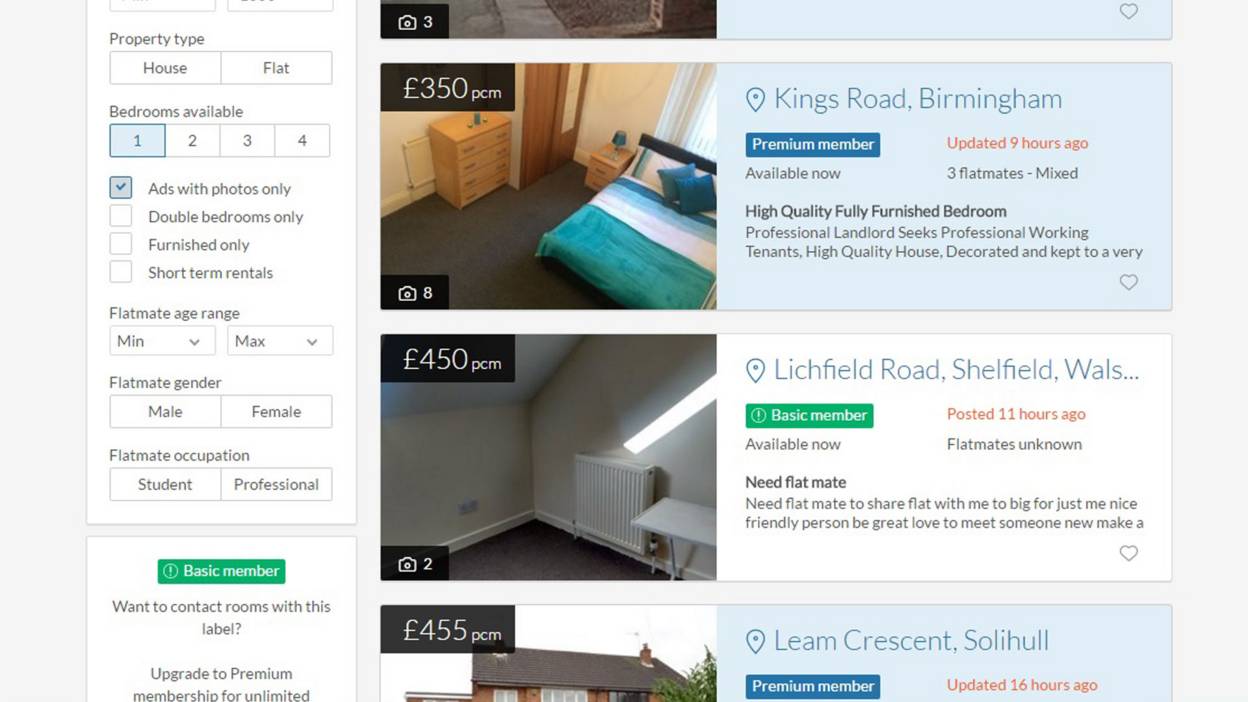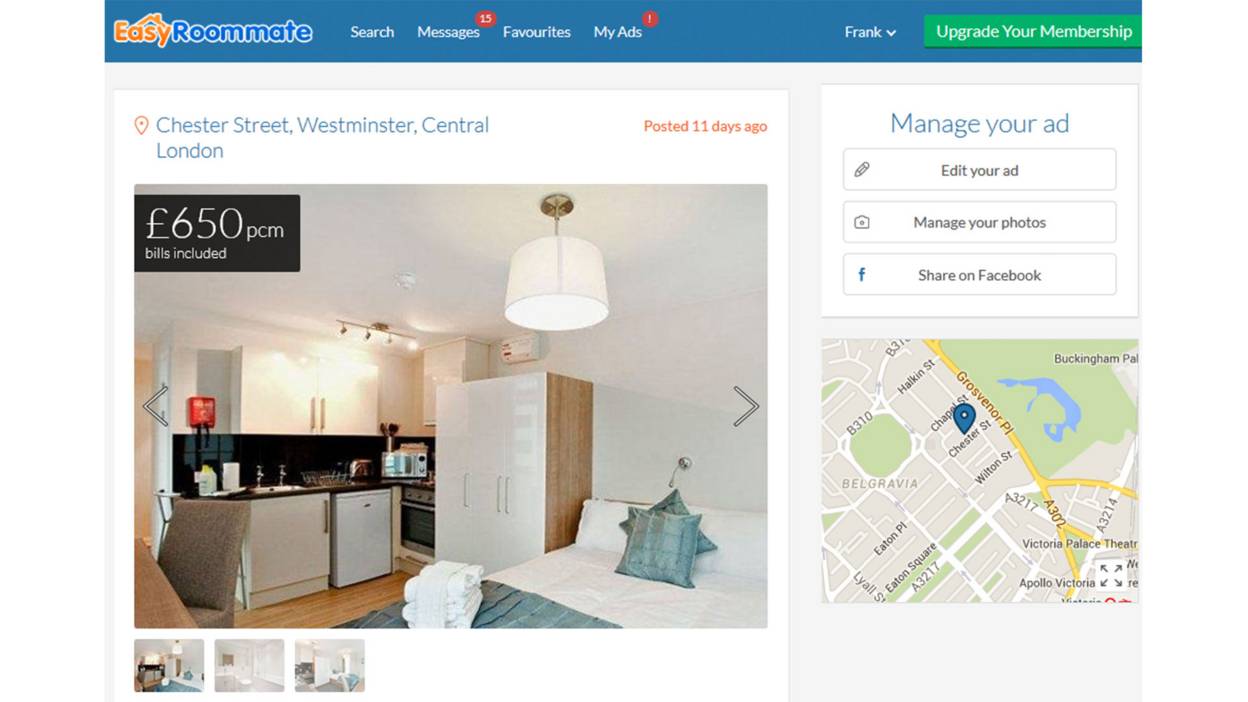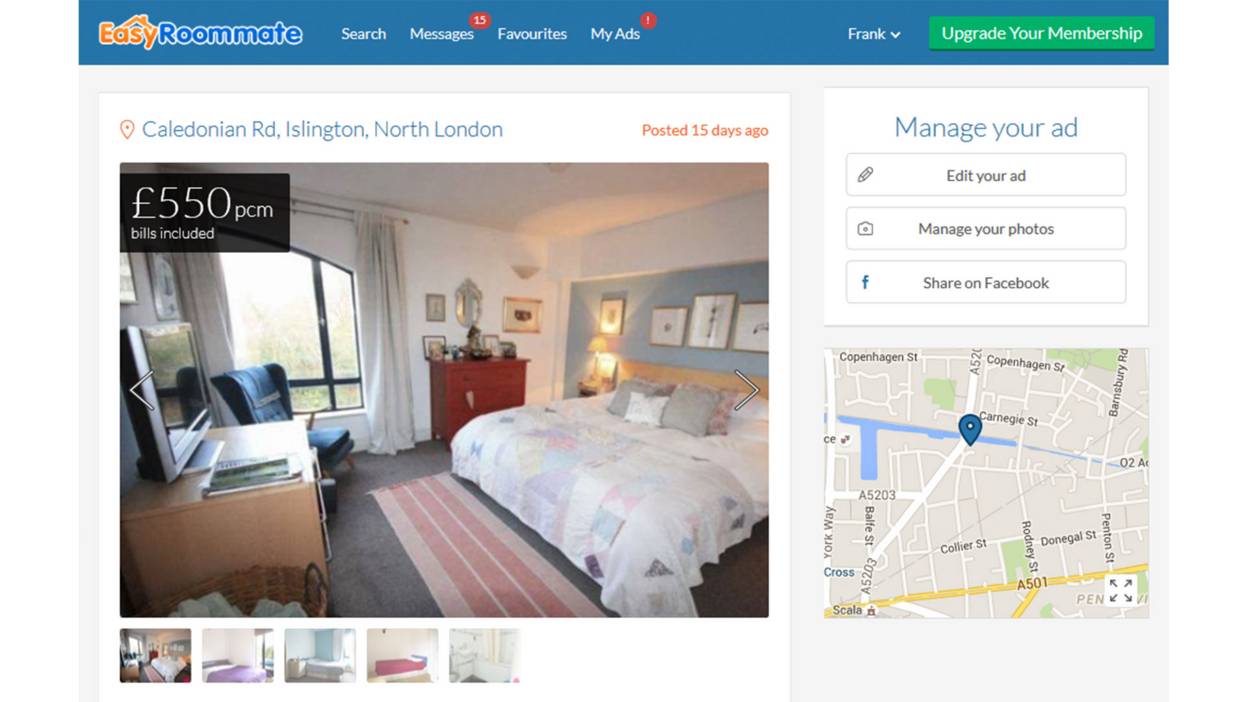 BBC
BBCWatchdog On Three: How not to get scammed by student rental frauds
It’s that time of year again. First year freshers are heading into halls of residence whilst others are finding flatmates and house hunting. It can be a stressful time. Demand for accommodation is high, and unfortunately for some students, they are finding themselves dealing with fake landlords, phantom flats and getting conned out of their cash.
Last academic year there were over 1.6 million students in full time education and 32% of them were in private rented accommodation. Reports of rental fraud in England and Wales leapt from 2,216 in 2014 to 3,193 in 2015. The autumn months see a big rise in rental market properties. Bogus adverts appear on websites which offer houses that are already rented out, not owned by the landlord or don’t even exist.
 Easy Roommate
Easy Roommate
The STUDENTS:
A student in Southampton became suspicious after paying the deposit on a property and not receiving the keys. The 21 year-old found the property advertised on Facebook. When he visited the property he only saw the outside of the building. He transferred £700 to the landlady but was asked for more money before he could access the keys. The student realised it was a scam and contacted the police and Citizens Advice.
Another student, a 19-year-old from Bristol, found a short-term let on the internet. She contacted the landlord over email, and sent £1000 for the deposit and a months’ rent in advance via money transfer. She didn’t receive a contract, and just before she was about to move in the landlord told her that the room was no longer available. She asked for her money back, but received no replies to her emails.
 Easy Roommate
Easy Roommate
The CON:
Fraudsters advertise properties to rent at attractive rates and in excellent locations to lure in victims. Adverts appear genuine along with photos and contact information. Dodgy landlords trick victims into handing over money whether it’s as a holding fee, a deposit or the first months’ rent, even before the renter has viewed the house or flat. Fraudsters pressure students by telling them the property is in high demand and will be off the market if they don’t act fast.
Rebecca Chan, Housing Expert at Citizens Advice tells Watchdog: ‘First-time renters can be an easy target for con artists. You should always see the property first, so be wary of landlords who won’t let you look round inside the building. Watch out for properties that look great or are in an expensive area but are well beneath the usual price, as they may not be the real deal’.
Action Fraud told Watchdog: “Most students have to make every penny count, so it’s really important to make sure you research any house or flat you’re thinking of renting. Always be wary of landlords who are demanding money up front and don’t feel pressured into handing money over to secure a house or flat rental if you’ve not been to see it. Make sure you do background checks on the property and use reputable letting agents to avoid falling foul of fraudsters.”
The WEBSITES:
Watchdog got in touch with EasyRoomMate.com, one of the UK’s largest flat-sharing websites in the UK. It filters adverts before they go live on their website.
Pauline Delalandre, Customer Experience Manager at EasyRoomMate.com, tells Watchdog ‘Depending on the season we block between 1,000-2,500 ads per month. We are very busy during the summer. There is a high number of fraudulent adverts. So far this year we have blocked over 14,000 ads. It’s a numbers game. Scammers know the more they post the better the chances they have to scam someone’.
 Easy Roommate
Easy Roommate
How to AVOID getting conned:
1. One of the most useful things you can do is to carry out a ‘Reverse Image Search’. This allows you to check if an image has been used online elsewhere. This is how you do it:
- Right click on the image
- Select copy image address / copy image URL
- Paste this into the search box of your ‘reverse image search’ service
- Hit enter and it should reveal where else the image has been used
2. Always view the property.
3. No viewings allowed? This is the biggest tell-tale sign of all. If the landlord offers you random excuses such as ‘property being refurbished’, ‘landlord lives abroad’ or ‘current tenant works from home’ walk away. Find somewhere else.
4. The internet’s a wonderful thing – punch in your landlord’s name and see what comes up! It’s worth putting their mobile into a search engine too, if they’re using multiple names it can be a good way to catch them out.
5. Only hand over money after you’ve seen the property, been given the contract and signed on the dotted line.
Have you had trouble with a dodgy landlord? Watchdog would like to hear from you - let the producers know by emailing watchdog@bbc.co.uk with BBC Three in the subject line.
This article was first published on Wednesday 14 September 2016











